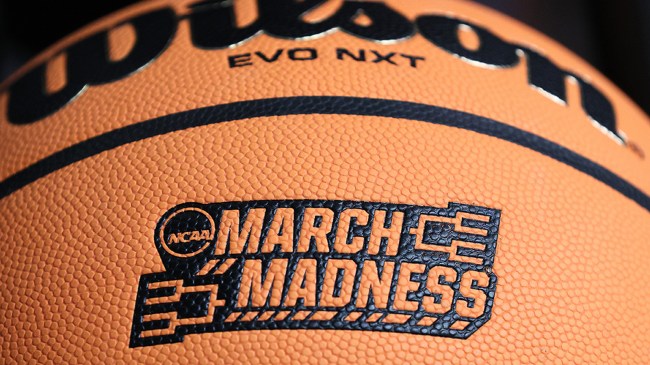
Getty Image

Audio By Carbonatix
The NCAA has found itself on the receiving end of an impressive string of lawsuits in recent years, and we can add one more to the pile courtesy of a group of former college basketball players who assert they deserve a piece of the wildly lucrative March Madness pie due to old highlights that are used to promote the tournament.
At this point, it’s a bit hard to keep track of the legal issues the NCAA has found itself dealing with over the past few years.
The advent of the NIL Era is the direct result of the landmark Supreme Court ruling that essentially forced it to permit payments to student-athletes in 2021 (it had previously been ordered to fork over $40 million to former players thanks to O’Bannon vs. NCAA).
Since then, the governing body has ended up at the center of other high-profile cases that have the potential to continue to alter the rapidly evolving landscape of college sports, including those that argue student-athletes should be viewed as employees, are entitled to revenue sharing, and shouldn’t be subjected to NCAA rules that dictate the specific nature of compensation.
The NCAA has also found itself skidding down a slippery slope concerning retroactive NIL payments courtesy of former players who want to cash in.
Earlier this year, it agreed to a $2.7 billion settlement covering student-athletes who were enrolled as far back as 2016, but a lawsuit that was recently filed by the members of the NC State basketball team that won a national championship in 1983 highlights the existential threat it’s currently facing.
The foundation of that legal filing is pretty similar to the one the NCAA has now found itself dealing with thanks to a number of former college basketball players who believe they’re entitled to compensation courtesy of clips it’s used to promote March Madness.
According to ESPN, the lawsuit (which names six major college basketball conferences as well as Turner Sports as defendants) asserts the NCAA has “systematically and intentionally” used iconic shots and plays in commercials promoting the tournament without compensating the players responsible, including Mario Chalmers, Jason Terry, and around a dozen other guys who are positioned as “uncompensated lifetime pitchmen.”
The NCAA has spent hundreds of millions of dollars in legal fees over the past decade on top of the billions of dollars it’s been forced to pay out as a result of the lawsuits it’s failed to conquer, and it seems like both of those numbers are only going to keep getting higher based on how things are trending.